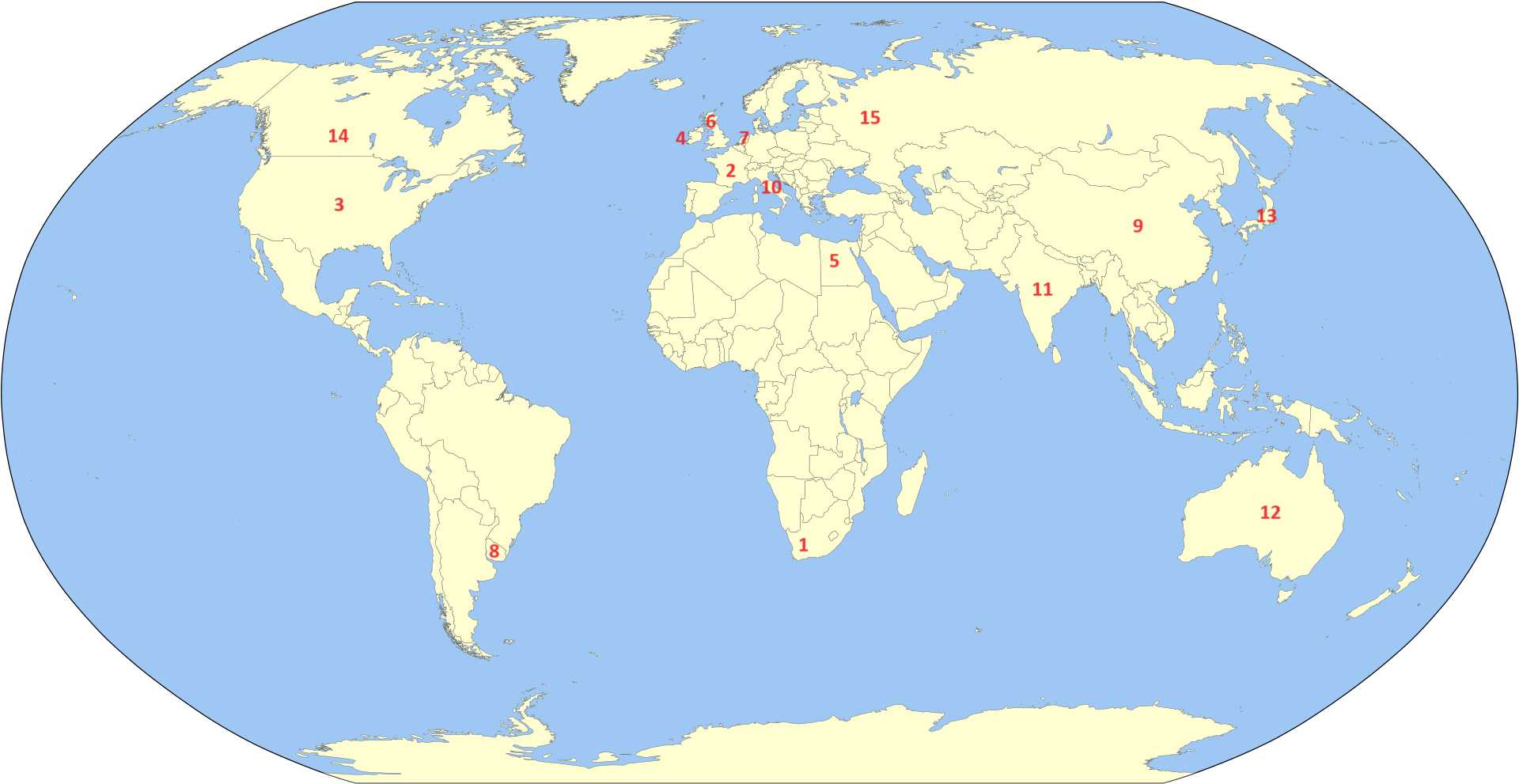
The First to Do It Trivia Quiz
Place each invention or event next to the number corresponding to the country where it first appeared.
A label quiz
by Joepetz.
Estimated time: 3 mins.


| 1. |
| 2. |
| 3. |
| 4. |
| 5. |
| 6. |
| 7. |
| 8. |
| 9. |
| 10. |
| 11. |
| 12. |
| 13. |
| 14. |
| 15. |